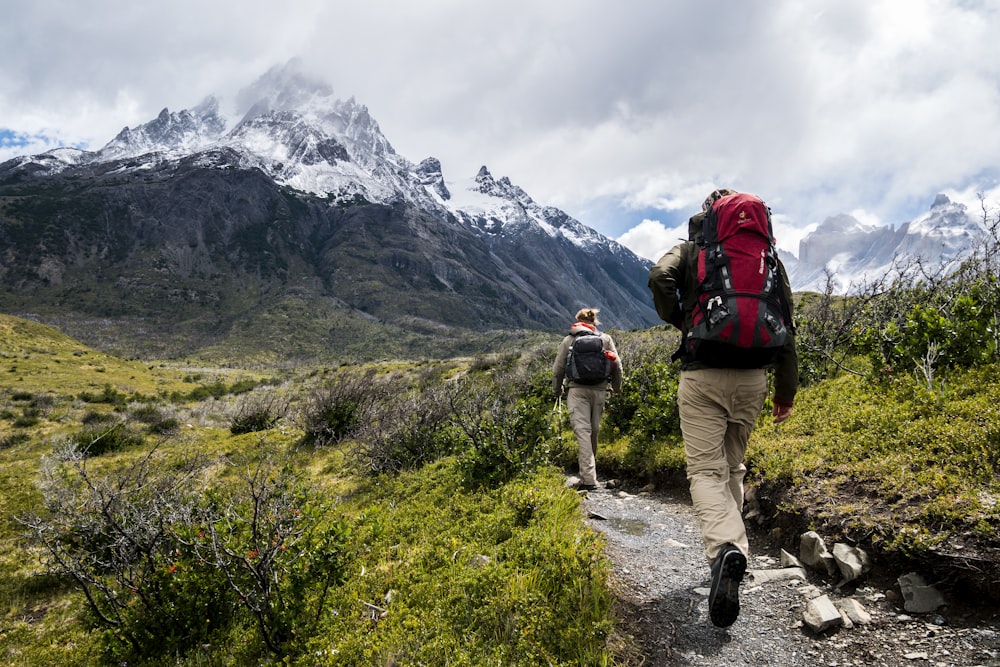What You Need to Know About Ecotourism

The Hidden Dangers of Ecotourism
I want you to close your eyes and imagine your ideal vacation. Now that you’ve done that, think of some of the places and experiences that ideal vacation involves. If you’re anything like me or the rest of the world, that vacation probably involves a beach, nature, or just being outdoors. (Pre-covid) travel rates throughout the world were at an all time high. In 2019, domestic and international travelers spent $1.1 trillion in the United States alone.
Recently there has been a big boom in the “ecotourism” industry. Ecotourism is defined as: the responsible travel to natural areas that conserve the environment, sustains the well-being of local people, and involves interpretation and education. At first glance, ecotourism seems like a really great thing, and sometimes it is. Unfortunately, there are organizations and people who have taken advantage of it. There is no umbrella organization that regulates ecotourism throughout the world.
All the time, people label their companies as “green,” “eco-friendly,” “environmentally friendly,” etc… in order to draw in customers, and it works. People are profiting off of ecotourism when they are degrading the environments they live in.
My Experience With Ecotourism
I’ve done a decent amount of traveling in my 23 years here on earth. I’ve first hand seen some really great ecotourism companies who were environmentally aware and careful. I’ve also seen some really bad ecotourism companies as well.
For instance, I did a semester abroad and spent some traveling throughout Indonesia. While I was there I had the opportunity to dive off of a little island called Gili Trawangan. The scuba shop I went through had all the classic ecotourism-like features. Posters saying things like “leave only bubbles,” “recycle,” “save our reef.” The charter provided all the divers with reef safe sunscreen and before the dive we had a big briefing on the importance of not disturbing the animals. These were all really great environmentally friendly things.

So you can imagine my shock 20 minutes into my dive when my guide proceeds to grab onto the sea turtles back and ride it… What happened to being environmentally friendly? Minimizing our impacts? Being reef safe? Not to mention the fact that if this were to happen anywhere else in the world the guide would’ve been put in jail.
Ecotourism isn’t all bad. I’ve had some really phenomenal ecotourism experiences as well. I spent some time in South Africa. While I was there I went on safari for 4 days. Before we even got into the game parks, we were briefed for an hour on how we were supposed to act. We had to remain quiet at all times, we’re not allowed out of the vehicles, and there were trash bins in the jeep to make sure no trash was left behind. The parks also only let a set amount of cars in to keep the wildlife from being overwhelmed
These two drastically different experiences I had highlight the fault in the term “ecotourism.” It doesn’t have guidelines, anyone can use it, and when people see the prefix “eco” they are quick to assume it’s environmentally friendly. There are many tour agencies that take advantage of this and the planet suffers as a consequence.
The Issues Associated with Ecotourism
Like I said before, ecotourism itself is not the problem. The problem is corporations bootlegging the term and advertising themselves as “eco-friendly” when they are not.
Destruction of Natural Environments
Many of these natural destinations are not in areas that have the infrastructure to sustain a high influx of people. To combat this; hotels, hostels, and lodges are built up on these pristine lands. This absolutely destroys the environment, and pushes animals out of their natural habitats. In addition to this, tourists are also essentially stomping across and destroying natural land. Uninformed snorkelers and divers step on and crush coral, (which fun fact are actually living breathing animals) which harms the. Corals are already endangered enough as is without us walking all over it.

Pollution
All of these hotels filled with tourists creates a ton of trash. Many of these places don’t have the facilities or resources to deal with this trash and it just ends up back in the environment. For instance, the country of Indonesia produces 200,000 tons of trash each day. The country also doesn’t have any ways to get rid of the trash either. It just piles up in unregulated landfills. The millions of tourists who visit the country each year are exasperating this problem.
Taming Wild Animals?
Yes I said taming wild animals, you heard that right. Bad ecotourism practices are changing animal behavior around the world. In places like the Cayman Islands, stingrays are not acting like they normally are supposed to. Instead of being active and feeding at night, they are awake throughout the day due to being fed by tourists. This is detrimental to them because if the tourists were to stop coming, they may not be able to feed themselves.
How You Can be an Eco-friendly Tourist
There are many ways to be an environmentally conscious tourist, but the first and most important one is to just use common sense. If something doesn’t seem right, or too good to be true, it probably is. If you see people not respecting the environment don’t utilize their companies.
Research, Research, Research!
Almost everything we do today utilizes the internet in one way or the other. When you are online booking your excursions read the company’s policies. See if they are affiliated with any environmental organizations in the country they are in. If they are using language like “green” or “eco,” look at how they use it. Are “green” and “eco” just thrown around without any context? Or are they thoroughly explained and show what makes this tourist company’s practices eco-friendly.

Make sure to read reviews as well. Sometimes websites can be vague so it’s best to read first hand accounts of how the tour went for others. Most people want to be kind to the environment. If they had a bad experience, odds are they would probably elaborate on it in their reviews
Be Mindful
When you are on your excursion, mindfulness is key. Make sure you’re disposing of your trash correctly. If there isn’t a trash can or recycling bin, hold on to your trash until you find a place where you can properly dispose of it. Also, watch where you step, take care to not trample across plants or animals. Most of these places are delicate.
In addition to this, do your best to be knowledgeable of the state of the place you plan on visiting. When you purchase souvenirs make sure they aren’t coming from endangered species like tortoise shell jewelry, or conch shells. Almost everyone has a smartphone nowadays, do a quick google search before you buy to make sure the thing you’re buying isn’t harming the environment.
Look But Don’t Touch
Don’t interact with the animals you see! Trust me, I know it’s hard to resist an adorable animal. You may want to touch it, or feed it, or get up close to it to get a picture. It may seem your one little interaction won’t bother them, but if you take all the people who go on each tour day after day it adds up. Wild animals are wild for a reason. Us getting up close and personal stresses them out, it may even force them to leave the places they naturally exist in. When you feed them, they associate people with food and stray away from their natural diets, can get sick, and even starve due to their inability to get food on their own.
Shop Local
When you’re out on your vacation try to spend your money at small locally owned shops and restaurants. These people are more likely to have the environment’s best interest at heart. It’s also a great way to authentically experience the culture of the place you’re visiting.
Do Your Best to Minimize Your Carbon Footprint
When you make your travel plans do your best to fly as little as possible. Aviation accounts for 2.5% of the world’s carbon emissions. In many places it’s convenient to book a small plane and hop from one place to another. Instead of doing this, try to take a more eco friendly mode of transportation like ferries or trains.
Use public transportation when visiting other countries instead of renting a car. Not only will it be much cheaper, it will be better for the environment in the long run. Also if you’re in a place where you aren’t traveling long distances look into renting a bike to get from place to place.
In Conclusion
It’s really easy to be a bad eco-tourist. At the same time, it is also very easy to be a good eco-tourist. All you need to do is make sure you adequately research the company you’ll be using and trust your gut. If something doesn’t seem like it’s environmentally friendly (like riding a turtle), it’s probably not, and would be best to steer clear of.
Happy Travelling!


Leave a Reply